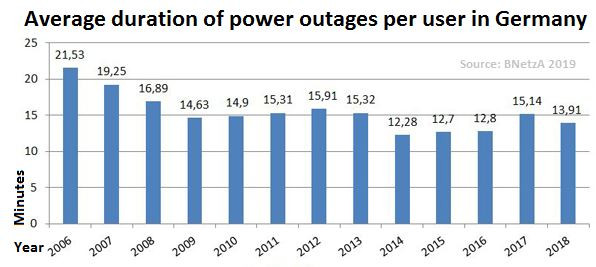Average power outage time in Germany in decline as renewables' share grows
The average duration of power outages per user in Germany has declined to 13.9 minutes in 2018, from over 15 minutes in the year before, the country's Federal Network Agency (BNetzA) says. "The energy transition and the growing share of decentralised power generation continue to have no negative consequences for the quality of supply," said BNetzA President Jochen Homann. He said the drop in power cuts in 2018 was due to fewer extreme weather events that had an impact on the power supply. The BNetzA's analysis registers all power cuts that persist for more than three minutes, of which there were a total of 167,400 last year, "the second-lowest value since the beginning of record keeping”, the agency says.
The German power supply is among the most reliable worldwide and the average outage time has continuously fallen in recent years as the expansion of wind and solar power sources progressed, despite a spike in 2017. Apart from extreme weather events, price speculation on the power market was in 2019 suspected to cause strains on the grid. The recent introduction of a new system on the market for control reserve should however prevent this possible source of fluctuations in the future.

